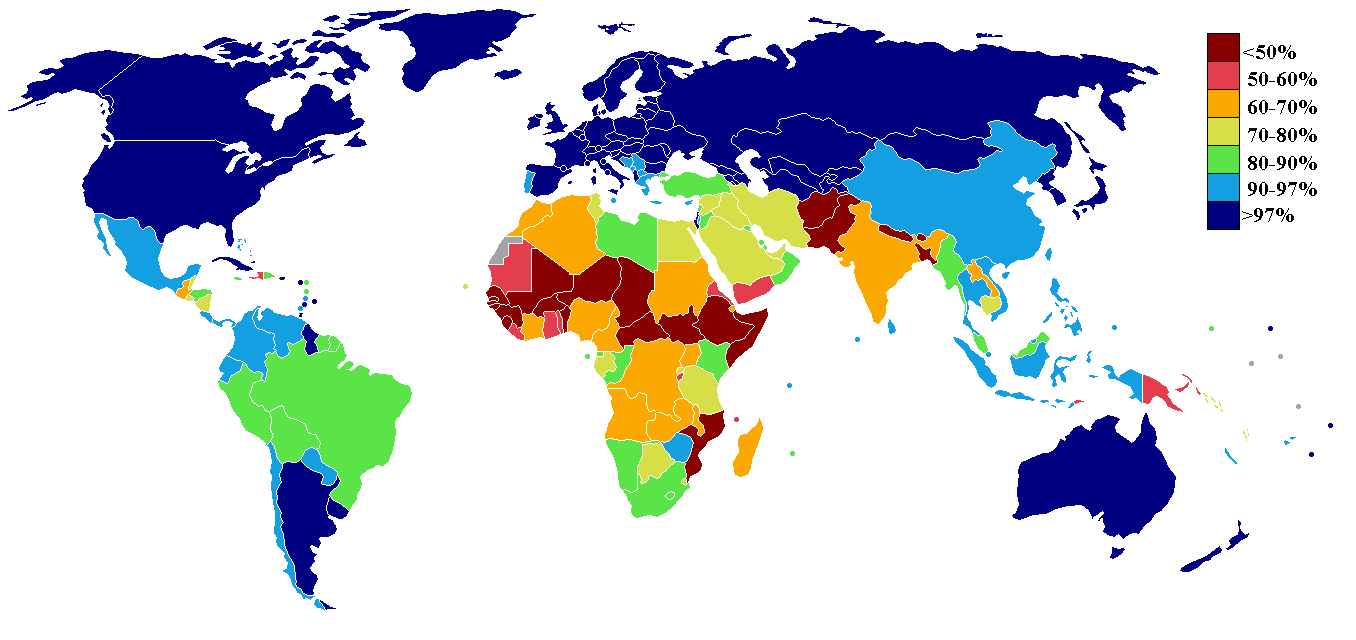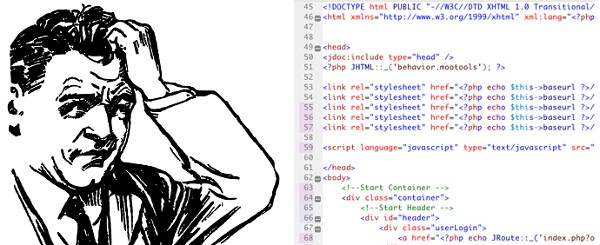A small, poor village in Niger has 100 adults, 50 men, and 50 women. Women are the engines of change. They work hard. They save money for their families. They make sure that their children go to school. But – they can’t read. The overall literacy rate in Niger is only 29%, and yet, it is even much lower for women, especially in rural areas. Of the 50 women in that village, only 8 can read, whereas 21 of the 50 men can. Despite their poverty, 58 of those 100 adult villagers own a mobile phone. This, of course, is a fictional village – but based on real statistics.
So what, you ask? We all know literacy is low in many places. So, what’s the big deal? Illiteracy matters because NGOs and governments across the developing world are implementing social change programs via mobile phones to try to improve the lives of the poor. These programs take advantage of the mobile phone’s ubiquity (6 billion mobile phones in the world and growing fastest in developing countries) by sending messages to the villagers to empower them on issues ranging from Agriculture, Civil Society, Education, and Environment to Finance, Governance, Emergency Response, and Health. These programs also sometimes conduct surveys via mobile phone for data gathering, to learn more about the villagers so that they can tailor (or personalize) messages and interventions for greater impact. But, there are several problems with the status quo, namely:
Problem 1: SMS Campaigns Exclude the Illiterate
World Literacy Map

World Literacy Map created by Tiiliskivi
These social change campaigns are almost exclusively implemented via SMS (aka “text messages”). What this means is that those 42 women in that Nigerien village who can’t read do not get those messages. Women need to rely on literate men to understand what the NGOs and government are trying to help them with. More often than not, these messages – especially ones addressing health, education, and women empowerment issues – have little to no impact when the clients are illiterate. (And let’s not forget the 29 men who can’t read and also receive little, if any, the value from these campaigns).
While mobile phones are changing the landscape of development, illiteracy is an obstacle standing in the way of these programs’ success. Niger is just an example of this illiteracy problem, which is a huge issue across the poorest parts of the world. The illiteracy rate across sub-Saharan Africa is 38%; across South Asia it’s 39%. But for women, it’s much worse. 46% of adult women in sub-Saharan Africa are illiterate, while a whopping 50% of South Asian women can’t read. For the poor who are “literate,” most tend to be either functionally illiterate or unable to comprehend messages written in non-local languages.
A recent study of Kenyan farmers exemplifies this point, noting that “more farmers use phone calls to relay information on their mobile rather than SMS.” We believe that programs delivered via a voice call would be far more effective than ones that rely on SMS. Voice calls are more trusted and more familiar for receiving information.
This illiteracy problem, however, is only one of the four key problems experienced by NGOs, Governments, and Businesses in developing countries that are trying to use mobile phones to bring about change.
Problem 2: Easy-to-Use Tools for Non-Tech People Don’t Exist
Is this How Technology Makes You Feel?
The second obstacle is that while mobile phones are a key tool in development, easy to use and affordable tools to leverage mobile infrastructure are lacking. The few tools that exist – like Vumi and RapidSMS – typically require technology experts and custom, expensive implementations; or they offer only basic features and can’t scale – like FrontlineSMS and FreedomFone. NGOs, governments, and enterprises therefore hire outside technology companies to build custom-made, dedicated solutions at great expense and over long timelines that delay the programs’ impact. They must either make significant investments to reinvent the wheel or limit the scope of their programs; and limited programs tend to neglect the poorest communities.
Problem 3: NGOs Don’t Share or Learn from Each Other
The third problem we’ve seen is that NGOs do not typically share content, forms, or collected data from their messaging and data collection programs due to the effort involved and a lack of incentives. Organizations duplicate efforts and do not learn from each other, resulting in inefficient use of funds and decreased impact. Additionally, donors often have neither enough data about the organizations they give to nor the tools to compare them and make better decisions as to which programs to fund.
Problem 4: Tech Savvy Organizations Don’t Have a Platform on which to Build Applications
The fourth hurdle is faced by startups and technically savvy organizations operating in developing countries; they lack a comprehensive infrastructure platform that they can build on top of for implementing their own messaging, surveying, and decision tree campaigns. Most either lack the resources to build their own back-end engine, spend significant time and resources “reinventing the wheel,” and waste time securing contracts with telcos in multiple countries. They are limited in the functionality of the back-end engine, thus limiting the scope of their solutions.
While the ubiquity of mobile phones holds real promise for effecting change, we at engageSPARK see these four key issues as limiting the potential impact of the many great initiatives underway (and yet to come) that leverage the mobile phone. That’s why engageSPARK, a not-for-profit social business, is developing a platform that seeks to amplify the impact of mobile phone-based development work by solving all four of these problems.
Solution 1: Voice Calls – A Server Calls a Mobile and Plays Back a Pre-Recorded Message

Image of Apatani Woman on Voice Call by Fowler&Fowler
First, we will enable NGOs to launch campaigns via Voice calls (our server calls a mobile phone and when the recipient answers, the server plays back a pre-recorded voice message in the local language), not just via online texting. Voice broadcasting, unlike SMS, can reach and effectively communicate with 100% of the poor who have access to mobile phones – in their local language and dialect.
Voice calls solve the challenge of communicating with those who are illiterate, especially women in the least developed countries – half of whom are illiterate. This is why 99% of women who have signed up for the Grameen Foundation’s MOTECH program in Ghana chose to receive pregnancy-related messages via voice. Voice calls also are the most personalized way to communicate with poverty-ridden communities; tailoring a message directly for the recipient tends to lead to greater impact. Yet, very few voice call programs exist today because building and implementing them is very costly and technically difficult. engageSPARK will drastically reduce these technical difficulties and provide affordable packages for NGOs to easily and quickly undertake voice call messaging campaigns.
Solution 2: A Simple Self-Service Website in the Cloud that Any Non-Tech Person Can Use
Second, engageSPARK will be a cloud, browser-based solution (a website), allowing NGOs to avoid the expense and difficulty of developing, installing, maintaining, and using complicated software. It will be completely self-service and will enable NGOs, governments, and businesses to easily and cheaply create a robust SMS or Voice Call messaging campaign, educational curriculum, mobile survey, alert, decision tree template, and reminder campaign (e.g., an appointment reminder or mobile healthcare reminder) targeting all poor people who have mobile phones in more than 200 countries. The best part is that it will be so simple to use that NGOs will not need any technical skills (other than basic Internet skills) to create and launch as sophisticated campaigns and surveys as they choose.
Solution 3: Incent NGOs to Share so They Can Stop Reinventing the Wheel
Third, we will financially incentivize (with discounts subsidized by sales to businesses) NGOs to share their content, forms, and collected data and will make it simple for them to do so. This way, NGOs will no longer need to constantly build programs from scratch, reinventing the wheel. Instead, they will be able to easily find organizations around the world that are implementing (or have implemented) similar campaigns and leverage work from those programs.
Solution 4: A Robust Messaging Back-End Engine for Building Richer Applications
Fourth, we will offer the first comprehensive API (non-tech readers: an API is a way for different pieces of software to communicate with each other) to a cloud-based messaging engine and platform focused on reaching the poor. Using the engageSPARK platform, pro-poor startups and technically savvy organizations will be able to build richer applications than they could previously. We hope to enable a whole new generation of startups that build applications to reach the poor – quicker, cheaper, and with more functionality.
Once NGOs and the Nigerian government start using engageSPARK (and as mobile phone penetration continues to increase), many more than 8 women in a village of 100 will benefit from these social change programs. Men and women across the developing world will have a better shot at stepping out of poverty and reaching for their dreams.
Do you have a different take on these key problems and the best ways to solve them? We would love to hear your thoughts below!
If you’re interested in knowing more about who we are, Meet Our Team.
If you’re interested in helping us implement our solution, Join Our Team.
And if you liked this post, please subscribe at the top of the page to get an email whenever we publish a new blog post (we promise we won’t spam you).
engageSPARK is a not-for-profit social business. All profits will be used to subsidize services to NGOs and governments, to further improve engageSPARK, and to build other services that will improve the lives of the poor. engageSPARK is the first product being built by Opportunity Labs.


